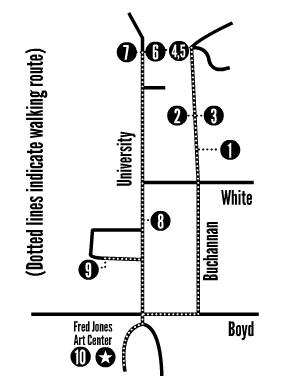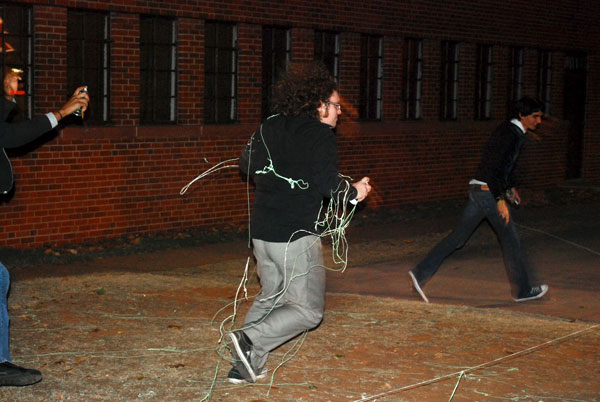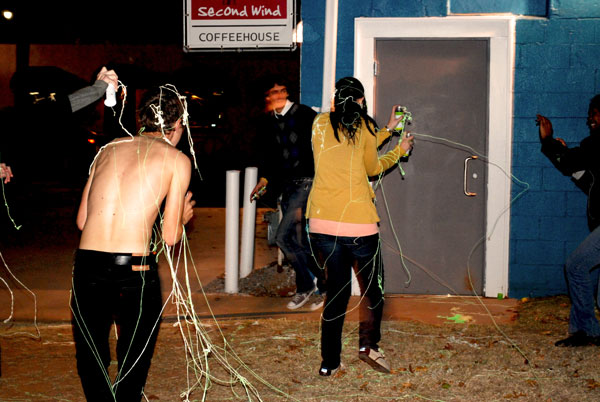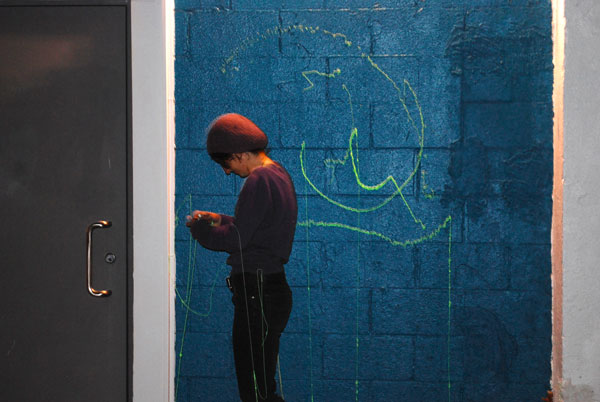






I sat in the front seat of the van, sifting through a bag of twenty cans of silly string; the all-too-popular child’s toy typically engaging children in wars where they shoot streams of brightly-colored liquid at each other. Half of them were glow in the dark, the others varied in color from purple to yellow to green. I distributed the cans, two to a student, while we made our way to our destination. After recklessly ripping the plastic seals and caps off with our teeth like wild boars, we stepped out of the two adjacent side doors of the white van. We paced the concrete in front of the alley with cans in hand, anxiously awaiting the arrival of our audience. When they were in sight, we stepped onto the grass and into our predetermined positions. The scene was something reminiscent of a gang poised to vandalize any and everything in sight. At my signal, we ran aimlessly about. Streams of aerosol string zipped through the air, the limited number of glow in the dark silly string doing all that it could to further brighten the dimly lit alley. We were children again, if only for a moment, reveling in the joys of this flammable substance. But we didn’t care. Some was swallowed, some dampened clothing, and some even decorated our mode of transportation. The moment was short-lived. When that depressing sound came, a sound similar to a balloon deflating or that of a drink and straw when the contents of that cup are completely empty, we regressed. Our bodies relaxed and became more natural, our faces sullen. One-by-one, we entered back into the van, for our journey was near its completion.
This piece takes into consideration the aging process and the natural movement that we tend to emulate when engaging in activities of this nature. Bordering on the outskirts of adolescence, I deemed it necessary to communicate the point of regression. Children are awkward, their movements almost robotic, but at the same time liberated. When one grows older, their movements become more natural, more advanced, more organic. The silly string fight demonstrates this by helping to reenact this inevitable progression. Moreover, when the silly string ceases to come out, our movements are stopped prematurely. In other words, we are forced to grow up.